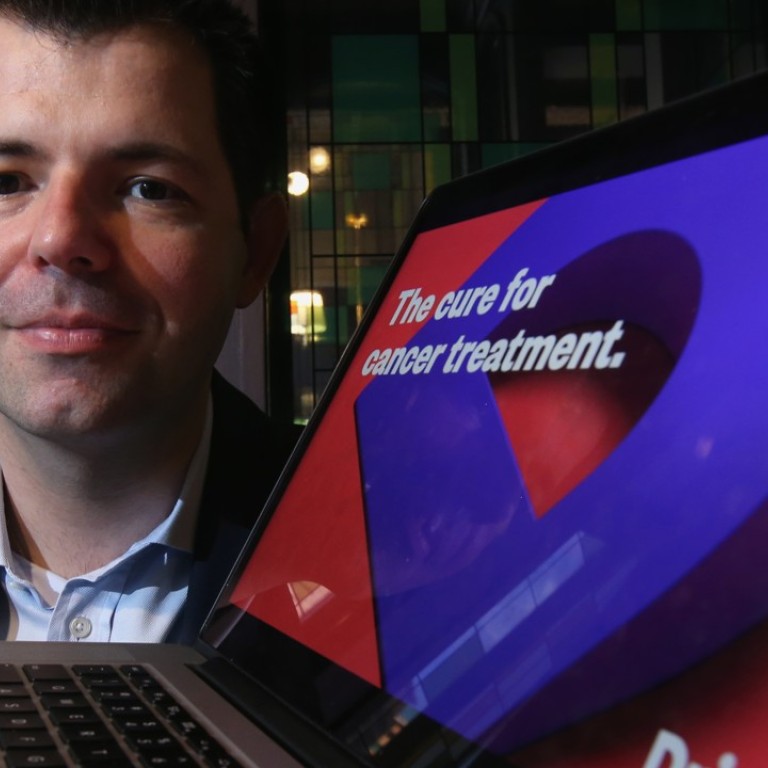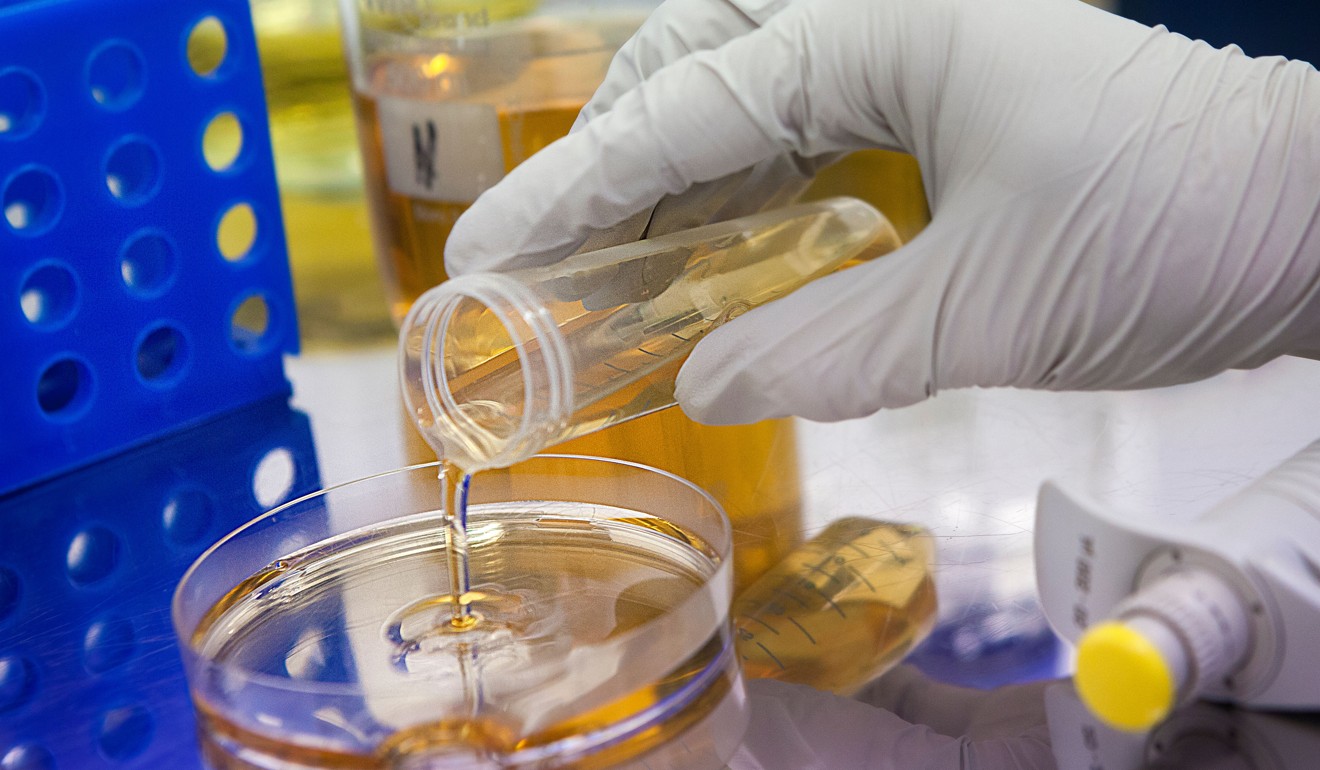
US start-up Driver, backed by Li Ka-shing, matches cancer patients worldwide with clinical trials and treatments in America, China and Singapore
Paid service aims to narrow the gap between what people are told or know about cancer treatments and what options actually exist
An American start-up backed by Hong Kong’s richest man Li Ka-shing on Thursday officially launched a paid service for cancer patients worldwide, matching them with suitable treatments offered in the United States, China and Singapore.
For a one-off fee of US$3,000 (HK$23,500) and a monthly subscription of US$20, Driver will provide a list of the latest available cancer treatments, including clinical trials, at more than 30 institutions in the three countries, and monitor patients’ outcomes if they sign up for any of the options.
With the monthly fee, Driver will keep tabs on the patient’s condition and suggest follow-up care if needed.
Crowdfunding to help needy cancer patients ineligible for subsidies
The company, founded by two doctors, had been in talks with the two medical schools in Hong Kong – at Chinese University and the University of Hong Kong – to include their trials in its database.
Petros Giannikopoulos, Driver’s co-founder and president, said the company, which was formed three years ago, aimed to narrow the gap between what people were told or knew about cancer treatments and what options there actually were.
Don’t limit it to just what this one person in this one hospital can offer you
“We want to give people access to all the information out there,” the pathologist explained. “Don’t limit it to just what this one person in this one hospital can offer you.”
The company estimated it could take on average as little as two weeks for patients who used its service to be presented with available options on its mobile app.
First, they need to provide Driver with their medical records. Residents in mainland China and the US can also provide their tumour samples to Driver’s labs in both countries and the information would be used to generate options.
A doctor then explains the choices to the patient through video conferencing and if the patient chooses a specific institution, the start-up would help make an appointment there.
Clinical trials are used by researchers to test the safety and efficacy of new drugs and usually funded by pharmaceutical firms, and form the bulk of treatment options. The founders, who spoke to the Post on separate occasions, said they believed clinical trials were “the best cancer treatments” and were “cutting-edge treatments”.
‘The most powerful sound you will never hear’: could this treatment lead cancer fight?
Driver co-founder and CEO William Polkinghorn said once a patient was transferred to a specific centre, that facility would be responsible for the patient’s care.
“We only work with the best centres in the world ... They have very careful processes to be able to accept a clinical trial,” the radiation oncologist said.
About 30 of the institutions are in the US, four are on the mainland and one is in Singapore. They include the countries’ national cancer centres.
Chinese University’s medical school confirmed Driver had contacted it to discuss a potential collaboration, but refused to disclose further details. HKU did not respond to the Post.

Polkinghorn said the company wanted clinical trials in Hong Kong to be listed on its platform as those conducted here were just as advanced, or even more so than those done in other developed economies.
“It would be easier for Hong Kong patients to access clinical trials, and it would be easier for Hong Kong institutions to fill clinical trials,” he added.
It would be easier for Hong Kong patients to access clinical trials
Since 2015, Li’s private investment arm Horizons Ventures has pumped an undisclosed amount into Driver and is now the start-up’s largest investor. Driver did not reveal how many investors it had, but on Thursday said it had raised US$90 million in total so far.
Horizons Ventures representative Patrick Zhang, who sits on Driver’s board, said the platform helped address the problem of poor accrual of patients, which he called “a significant barrier” to the successful completion of oncology clinical trials.
According to data cited by Driver, about 60 per cent of clinical trials in the US have been shut down as they cannot enrol the required number of patients.
The service comes as more people in Hong Kong are being diagnosed with and dying from cancer. According to the latest available statistics, there were 30,318 new cases of cancer in 2015, up from 22,775 in 2005. In 2016, cancer was the cause of every one in three male deaths; the figure was slightly lower for women.
Hong Kong records latest high of 30,318 new cancer cases
More service providers have also emerged in recent years on the mainland to give people access to medical services through mobile apps, including We Doctor and Ping An Good Doctor.
Clement Chan Wai-kit, chairman of the city’s Cancer Patient Alliance and a blood cancer survivor, said it was good to have more information about treatment options. He believed cancer patients in general were open to clinical trials.
Dr Stephen Chan Lam, associate professor from Chinese University’s department of clinical oncology, said at present a patient hoping to join a clinical trial in Hong Kong usually relied on referrals from doctors. They could also look for ongoing clinical trials themselves on the internet.
“But patients need to know how to screen the information ... and rely on their own knowledge for online searches,” Chan said.

